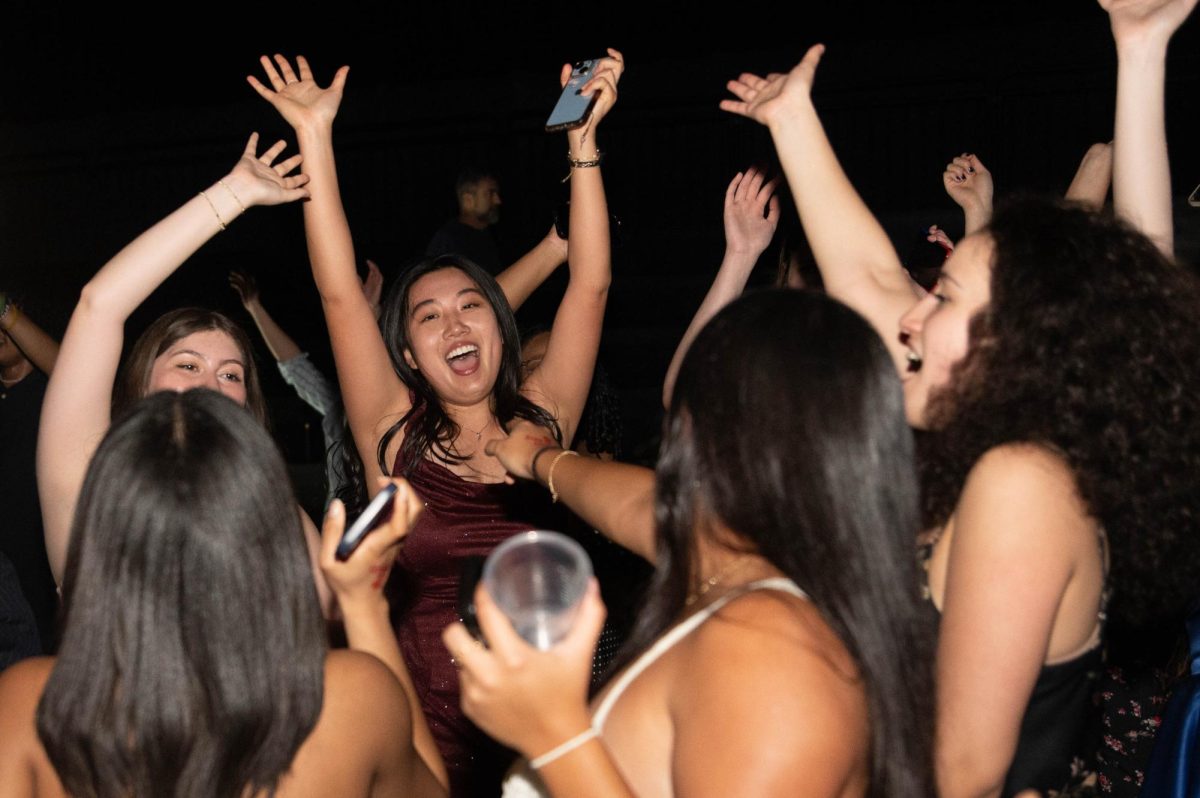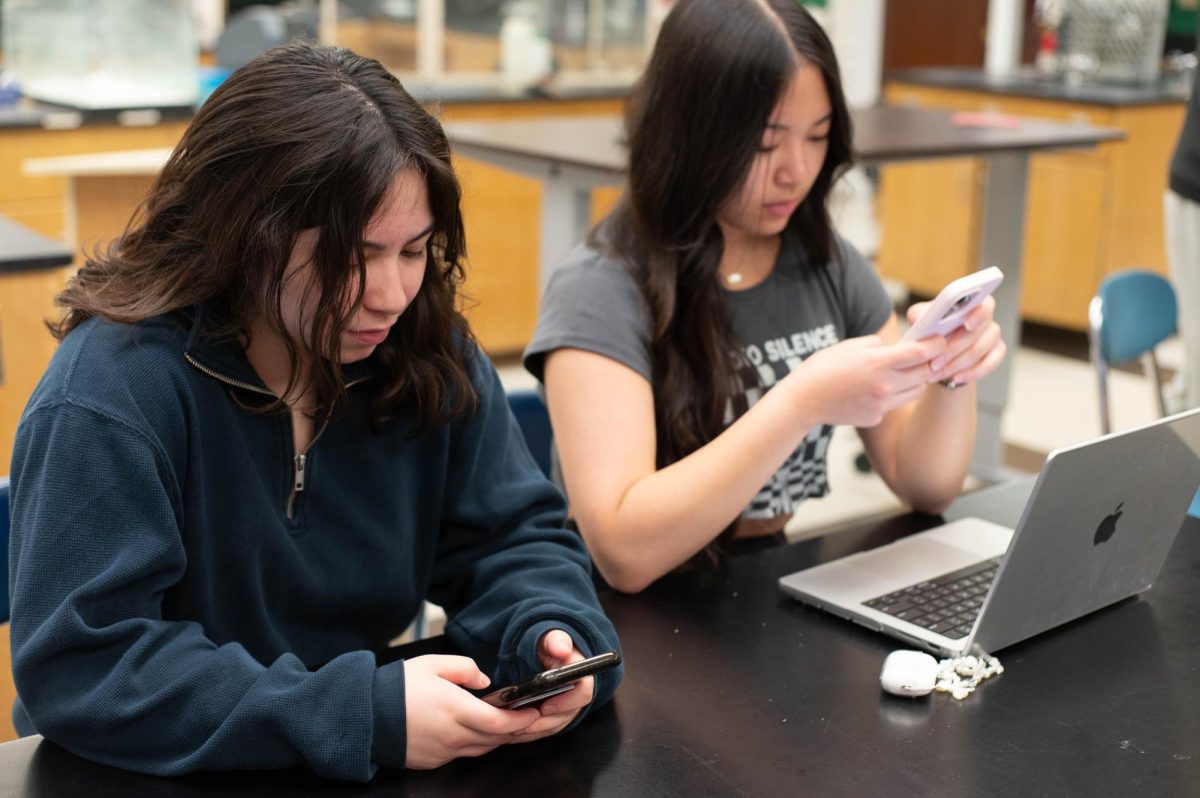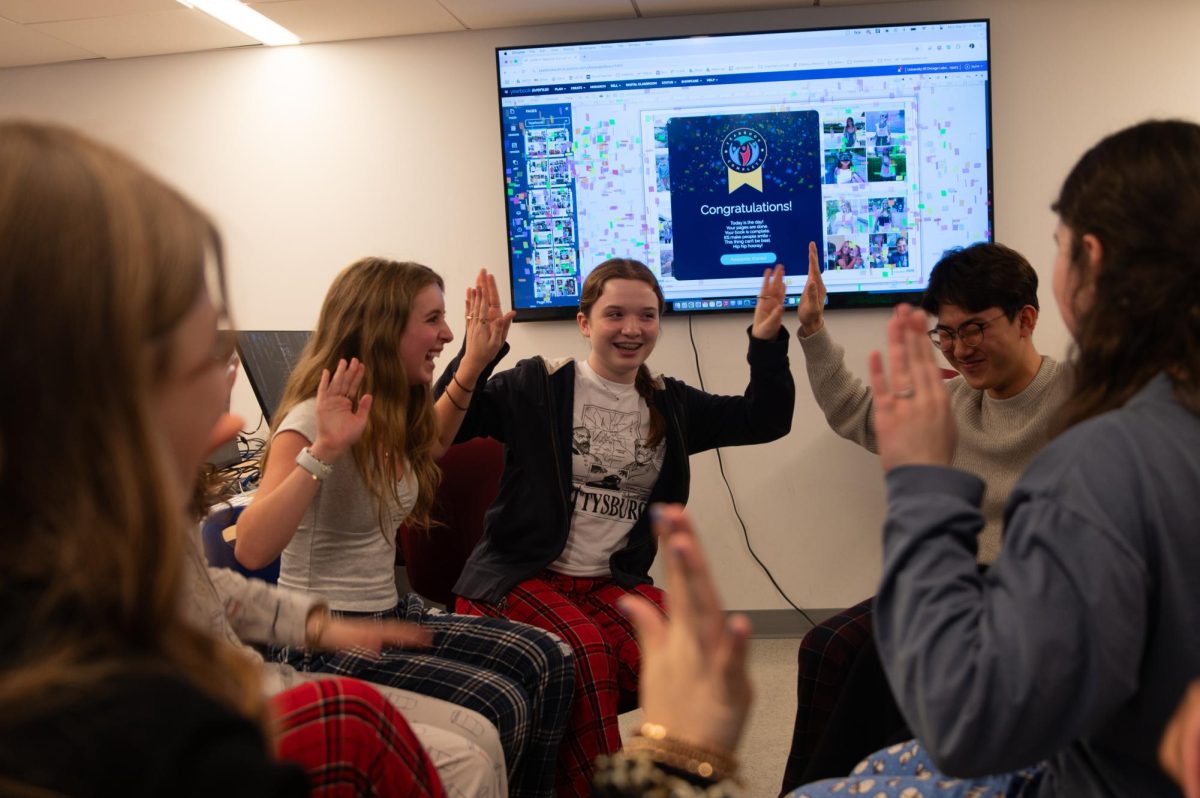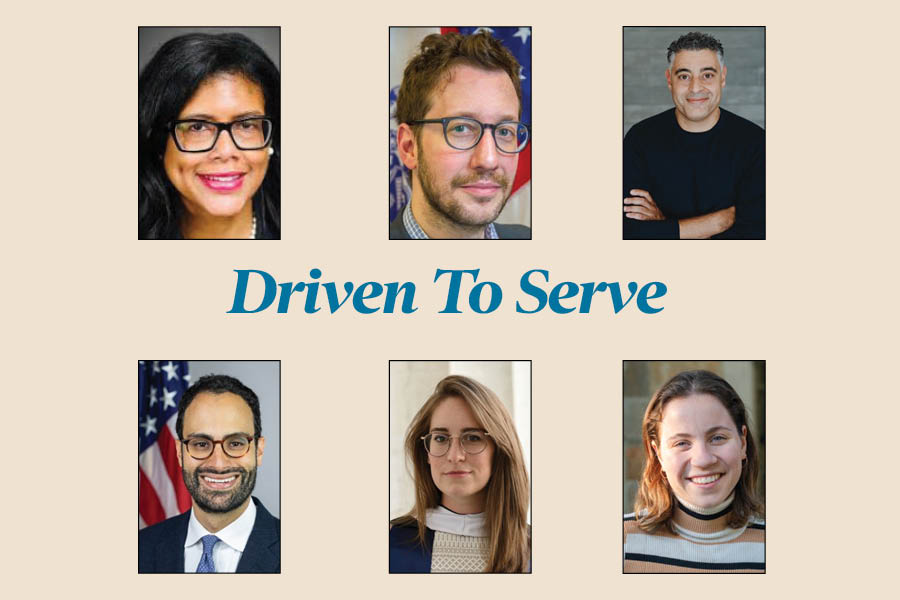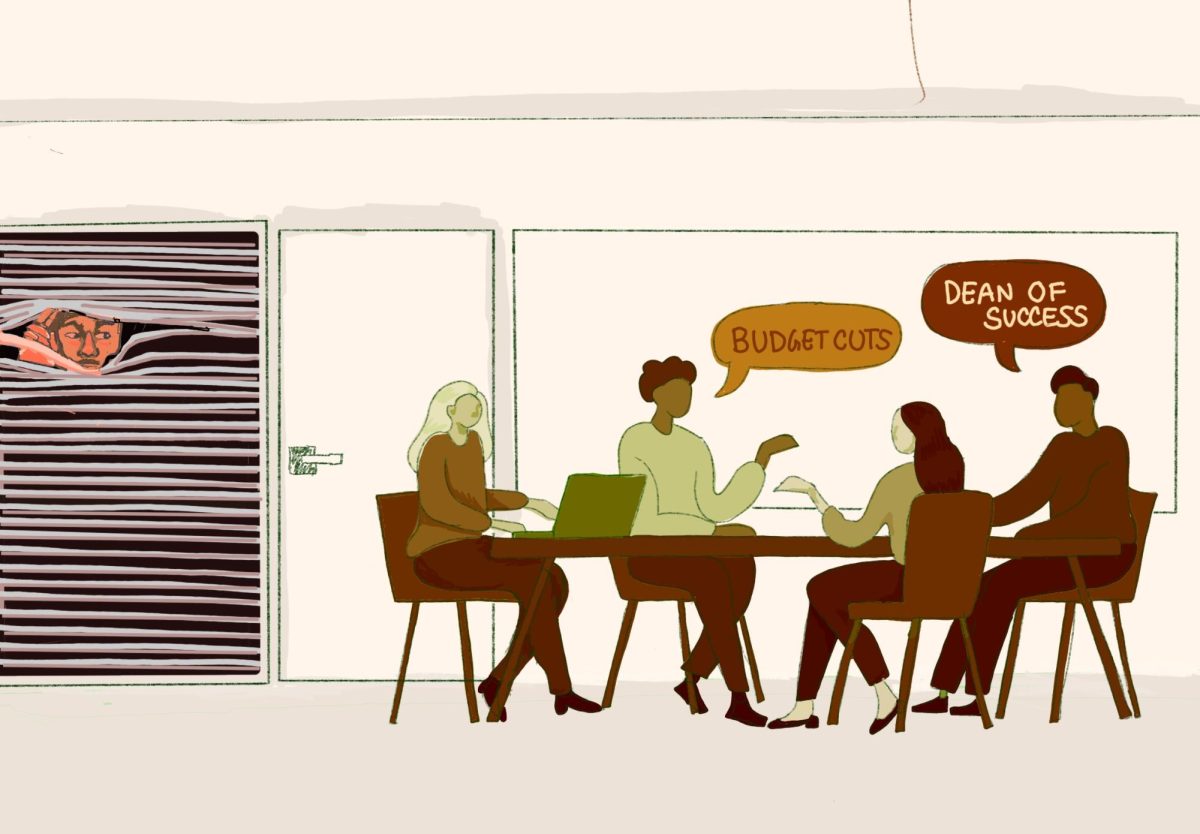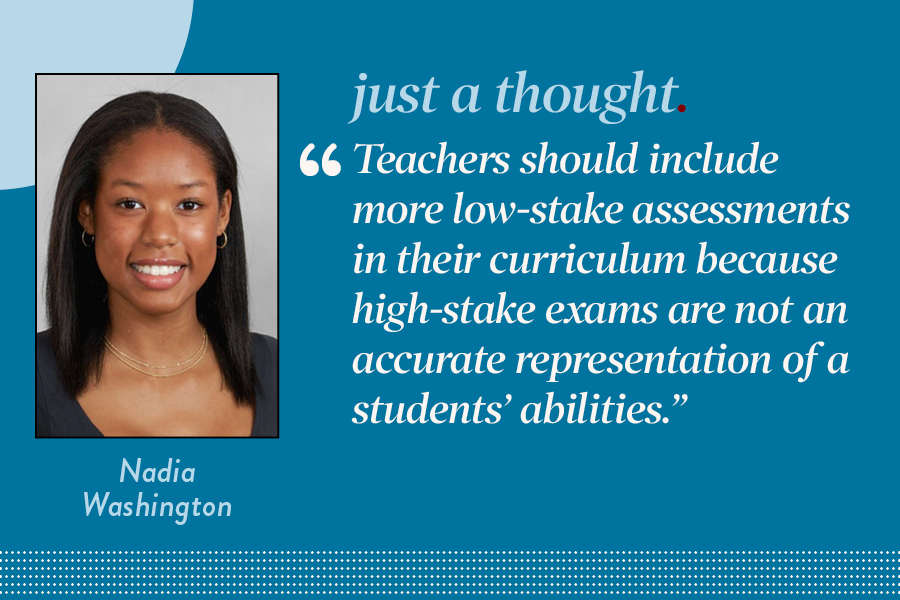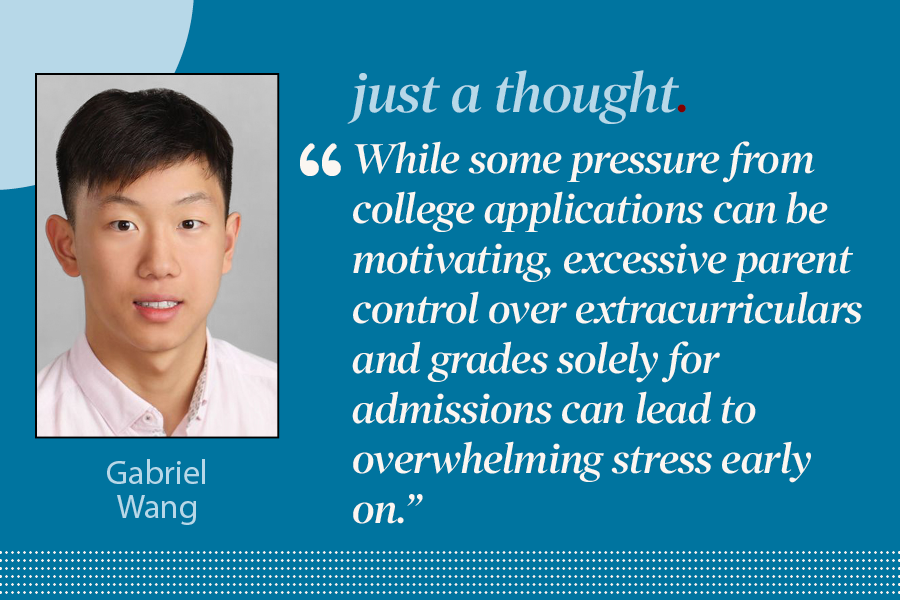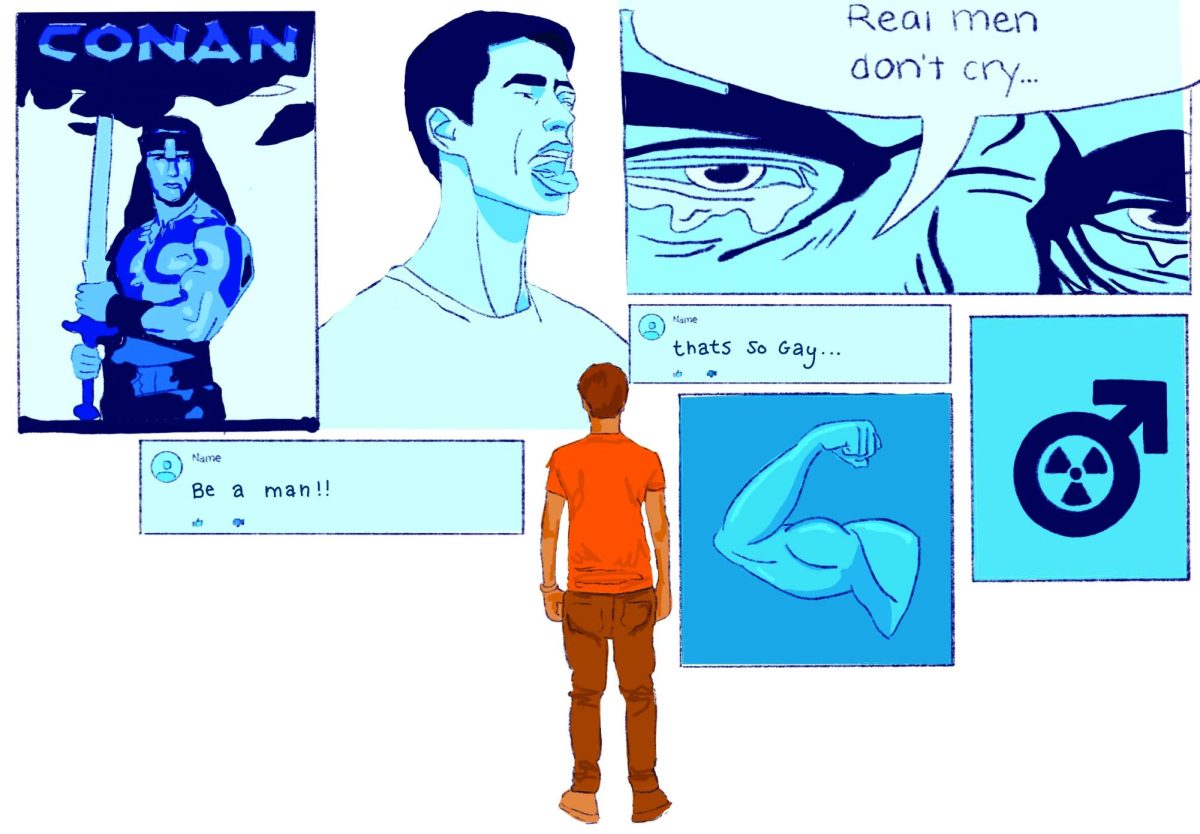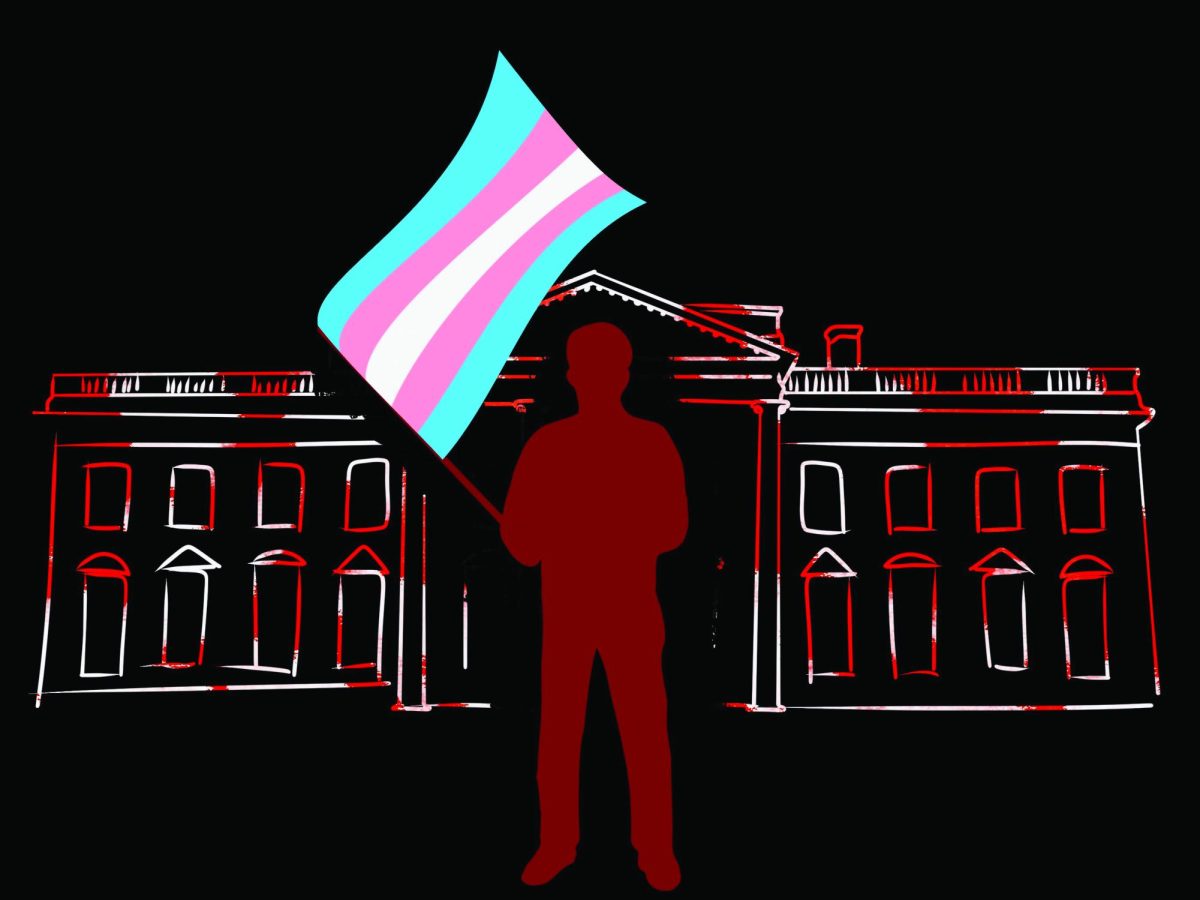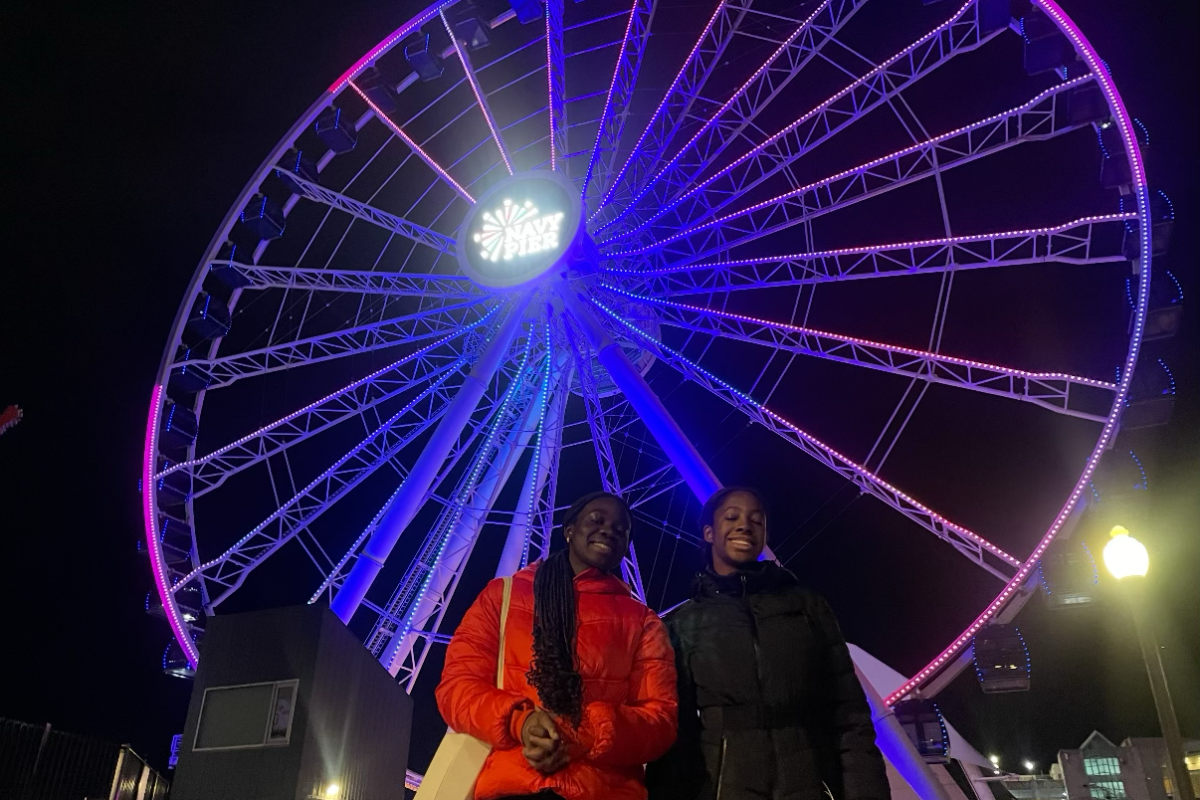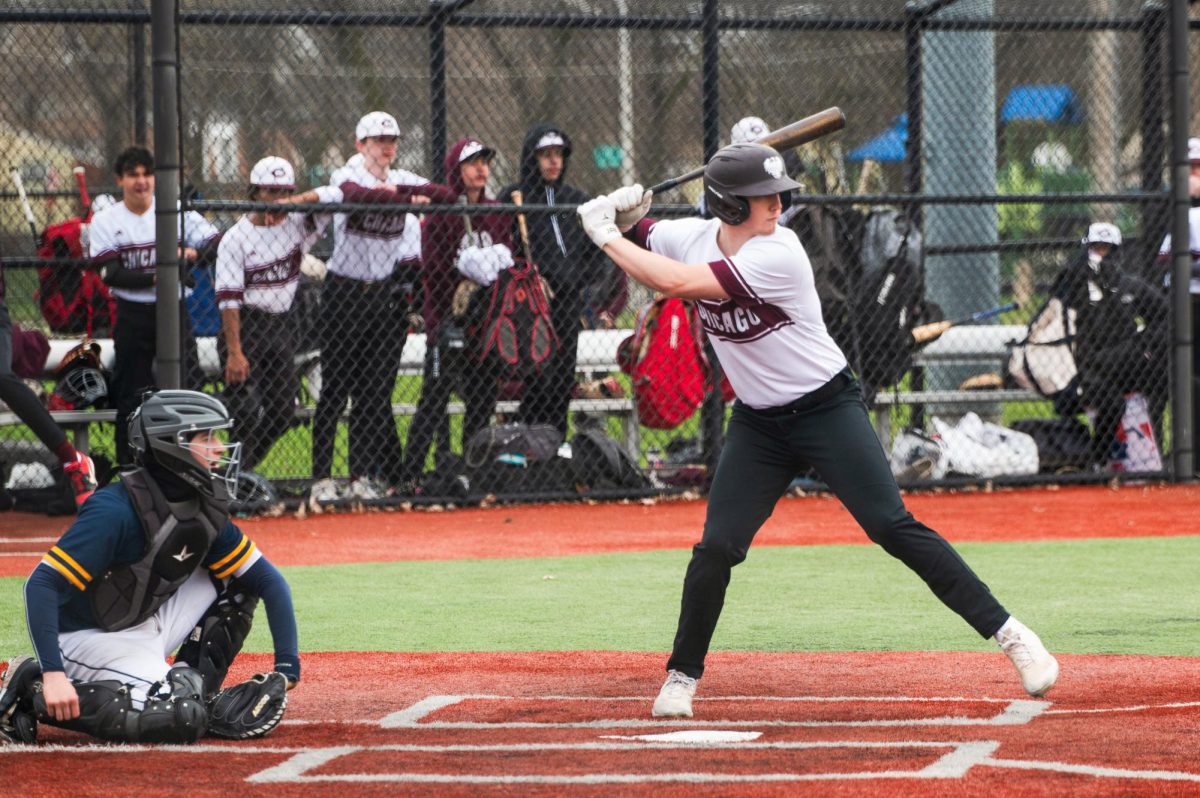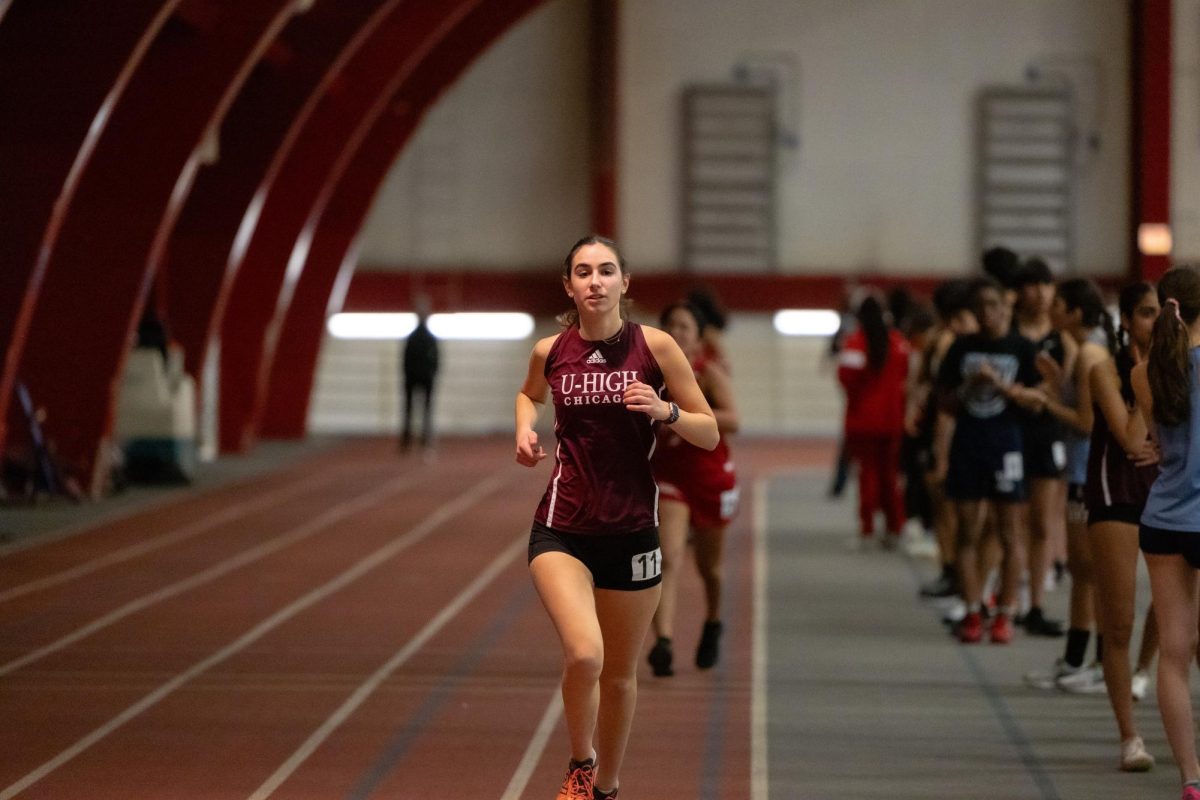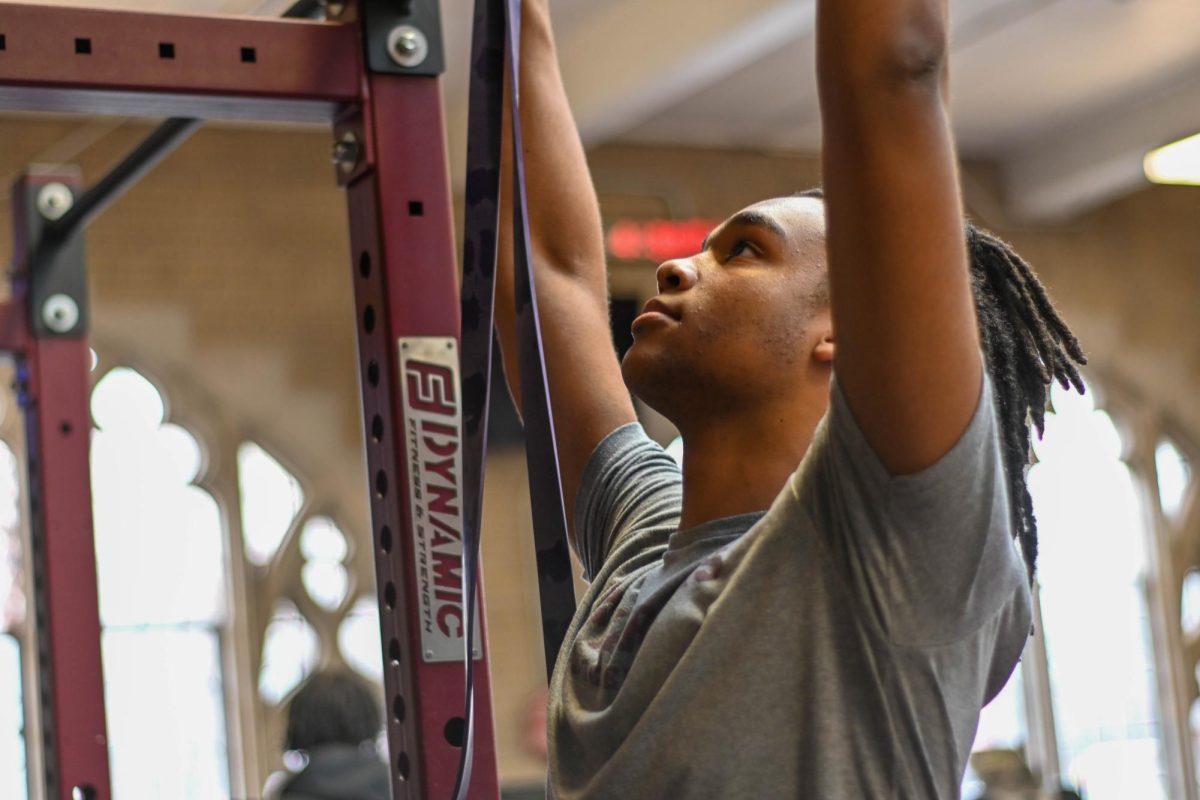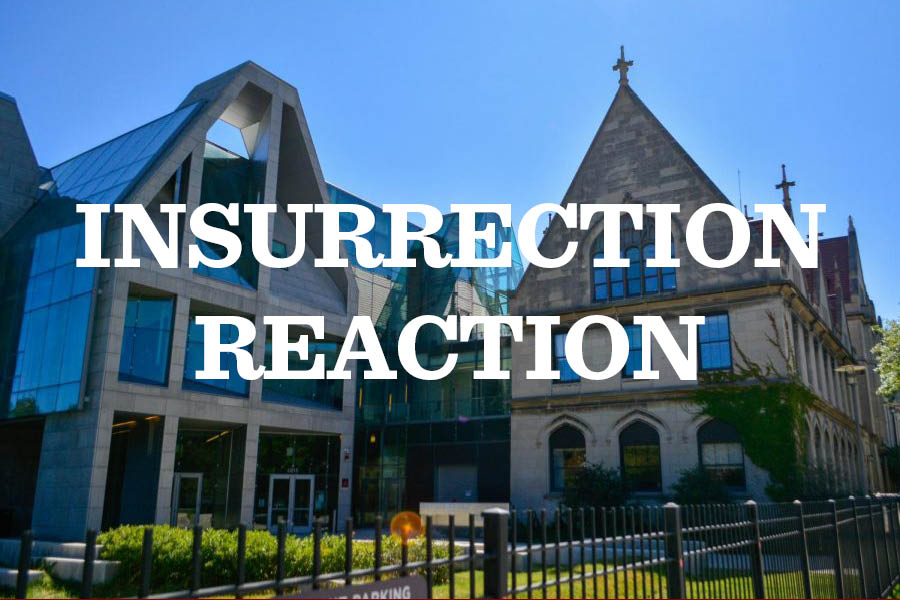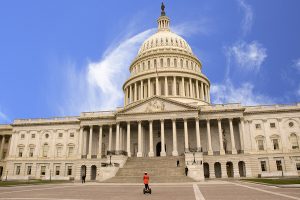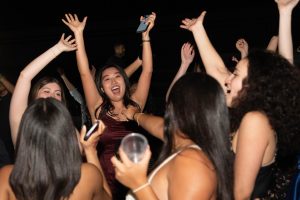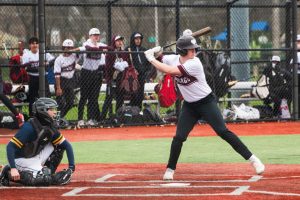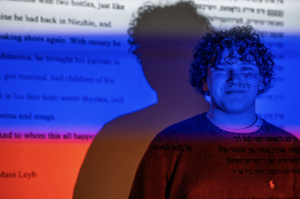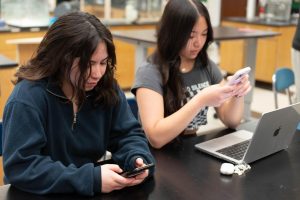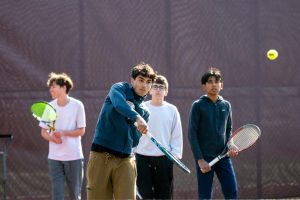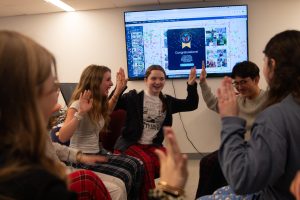Discussions, reactions, relaxing activities fill school day after Capitol insurrection
Malcolm Taylor, Midway Staff
Some teachers chose to postpone teaching new content Jan. 7 and instead provided spaces for students to discuss what happened in the U.S. Capitol the day before. Classes were optional, and some experienced moderate to extreme reductions in size.
January 7, 2021
After the insurrection in the U.S. Capitol Jan. 6, student leaders, faculty and administration held several spaces for students and faculty to process through discussion, socializing and in-class activities Jan. 7.
Some teachers adjust class, provide space for student discussion
Some teachers chose to postpone teaching new content Jan. 7 and instead provided spaces for students to discuss what happened in the U.S. Capitol the day before. Classes were optional, and some experienced moderate to extreme reductions in size.
Sophomore Ege Halac attended some classes but opted out of others. He worked on homework for Monday and extracurriculars instead.
“I attended English because we learned something outside of the curriculum,” Ege said. “I stayed for the beginning of history and P.E. but then left because we talked about the current events, and I thought I already knew what was going on pretty well.”
Some teachers structured class around student preferences, but history teacher Christy Gerst created a separate class plan.
“I created a lesson for today, knowing that school was optional for students, that some students might come,” Ms. Gerst said. “While there [are] going to be numerous emotional supports from learning and counseling, they may want to look at this from also the kinds of things that we’re studying in class.”
Students chose breakout rooms where they discussed topics that included political science terminology, how the federal criminal code applies and what the FBI will investigate, critical race scholarship and history, and sociologists’ perspectives. Discussion continued as a whole class.
Sophomore Kriti Sarav attended Ms. Gerst’s class and found the discussion helpful.
“I didn’t know if anyone else was also staying up late last night watching all the news and reading articles, and I think it was nice to see that other people were doing that,” Kriti said. “I learned a lot from some of my classmates, about what they had to say, their opinions, and how they correlated or concatenated with what I was thinking.”
Junior Lucy Nathwani also agreed that hearing others’ opinions was validating and that class discussions were useful.
“My teachers have actually been really good. My classes were much smaller than they are normally, but so far it’s been chill,” Lucy said. “Teachers have been really supportive so far, and I’m really glad about that.”
However, some teachers were not as supportive.
“My first teacher had us do an extra credit assignment,” freshman Sophie Stern said. “My second teacher, we went over homework that was due today, and introduced some new material.”
Others dispensed with the preplanned class activity. Like some other world language teachers, Susanne Pralle, who teaches German 3 and 4, facilitated a discussion in the language she teaches.
“I wanted to give space so that students could process,” Ms. Pralle said, “but I also feel German 4 [is] at a level where [they] can practice expressing opinions in German, and so I thought the best way to combine those two things was to do a Pear Deck activity to work through questions, work through feelings, while at the same time using structures that we’ve learned in German of how to express opinions.”
Spanish teacher Laura Salas-Damer also held a space for her students to debrief and process but provided her students options about using the class time. According to Ms. Salas-Damer, about half of her students showed up to her morning AP Spanish class.
“Very few students came to my AP this morning,” Ms. Salas-Damer said. “I feel a little pressured because I have the morning class at 9:15. I know I was the first one of many of them. But I said ‘What do you wanna do?’ I wanted to know what they wanted to do.”
History teacher Susan Shapiro dedicated today’s class periods to debriefing the incident at the Capitol, where she worked in the early 1970s for the Washington Internship program. She said having a personal connection to the Capitol motivated her to emphasize the value of democracy with her classes.
Ms. Shapiro said seeing the Capitol insurrection felt incredibly personal.
“Watching these thugs sitting on the vice president’s chair in the Senate, breaking the doorways — I walked through those doorways,” she said. “The picture of the guy in Nancy Pelosi’s chair, with his feet up on her desk — that’s a desk I’ve sat at.”
Sophomore Kiran Chinniah did not attend any of her classes today, instead attending student-led discussions. She said that not attending classes made her slightly nervous and she wishes that teachers were more transparent about their expectations.
“I was definitely a little bit nervous, but, like, at the end of the day I knew I wasn’t in the right mindset,” Kiran said. “Like this morning when I woke up, I really struggled to even get out of bed and knew I wasn’t in the right mindset to attend academic classes. And so I personally did what I think was best for me, and I’m happy that I was given the opportunity to do that.”
Knowing how heavy yesterday was, Ms. Shapiro adjusted the Early World History class’s deadlines and will be waiting until next week to discuss Egyptian society.
“We’re moving everything a day,” Ms. Shapiro said. “I think kids are going to feel a whole lot more secure in knowing that my expectation is not ‘You’re gonna have it done now.’”
Students leading activities
When Student Council and senior peer leaders found out classes were optional for students Jan. 7, they worked together to construct a schedule of activities, including Zoom calls for games of “AmongUs,” hanging out and debriefing, and a showing of the Netflix movie “Death to 2020.” According to Destiney Williamson, all-school Cultural Union vice president and senior peer leader, each space was meant to have a different focus and tone to help students process — socializing, discussing or learning more information.
“Everyone processes in their own way,” Destiney said. “As students, we understand how students are feeling in a unique way. We wanted to help by giving people whatever they needed.”
According to Destiney, the spaces with activities such as the “Among Us” game and the showing of the movie “Death in 2020” held about 10 people at a time.
“Each space kind of became what it needed to be for the people who were there,” Destiney said.
The lunchtime Student Council-led discussion had over 100 students attending and lasted almost two-and-a-half hours. The discussion covered topics ranging from the riots themselves to disappointment about police response to the politics behind the riots to how U-High was handling the issues.
“During all of the discussions, I try to, and Student Council tries, to facilitate in a way that encourages other people to speak and use their voices,” Destiney said. “We have been encouraging people to communicate with the administration.”
Moving forward, Student Council and senior peer leaders hope to continue to hold spaces and discussions as students need them.
“As long as students are interested in having discussions like we had today, the discussions are worth having,” Destiney said, “and we want to continue to help the student body as best we can through all of this.”
At videoconference sessions, students share reactions, socialize
With optional classes and assignments, students engaged in forums and other events to discuss the insurrections on Capitol Hill or to relieve themselves from current events.
According to Senior Class President Antonio Gracias, members of Student Council worked with peer leaders and administrators quickly to set up videoconference sessions for students to discuss the current events, watch a movie or play “Among Us” with others. In addition to one session led by faculty and administrators, four sessions were led by students.
During the morning student-led debrief session, attendees discussed ideas such as the treatment by law enforcement of participants at other protests in the past year, the difficulties of understanding different perspectives, and the political differences between rural and urban areas.
Ninth grader Mahi Shah, one of the attendees, said, “I really appreciate they are being student-run because then we feel like it’s an open space to say how we feel and without being judged because we know everyone’s going through, like, similar mindsets.”
Senior Anika Gupta shared a similar view and noted students are often more willing to share during student-led forums compared to faculty-led forums.
“At student-led meetings, we are able to convey how we actually feel because we feel safer around other students,” Anika said.
During a morning session, Anika also watched the Netflix comedy “Death in 2020” with peers to relax.
“I thought it was really nice to take my mind off of the events and be around other people who felt the same way as me,” Anika said.
In a similarly relaxing atmosphere, a group of students took the opportunity to socialize while playing “Among Us” during another morning session.
“It’s not like one of those, like, super-intense games,” sophomore Jeffrey Huang, one of the players, said, “but it’s also one where everyone can play and everyone can have fun in, so I thought it was pretty, pretty helpful.”
Antonio ran the “Among Us” session and said that video games can be a good way for students to distract themselves from the current events.
“It was nice because there were also people from across different grades,” Antonio said, “so I think that like being able to socialize with people that you might not see in your classes also helped, and I think that was a really fun experience.”
Although homework and classes were made optional to set out time for forums and other events, Anika said that the expectations were initially unclear.
“I think that the school administration should have said the word ‘optional’ and made it very clear that things are optional and not kind of skirting around the idea in a way that it made some students feel that school wasn’t optional,” Anika said.
Jeffrey noted that while the forums and other sessions are important for students including himself, they come at the expense of class time.
“On one hand, I want to feel that it was a bit too much, but at the same time, I felt that it was also helpful because some people are genuinely — like especially I am — pretty shocked about what happened yesterday,” Jeffrey said.
According to counselor Teddy Stripling, who facilitated a morning session, students and faculty will always have to find a balance between the curriculum and making time to support students in difficult situations.
“That’s a difficult thing as a school because schools have to manage still being able to provide learning but also being able to set a space to support students,” Mr. Stripling said, “and so I think the idea is that we can find an ideal space where we can do both of those things.”


